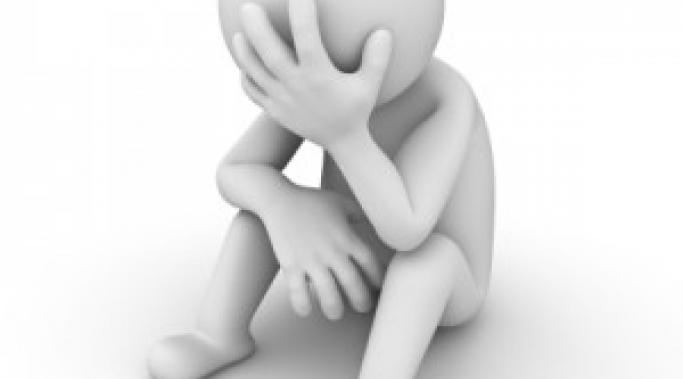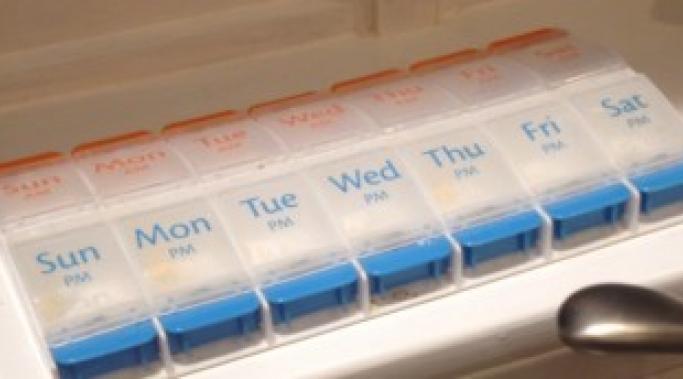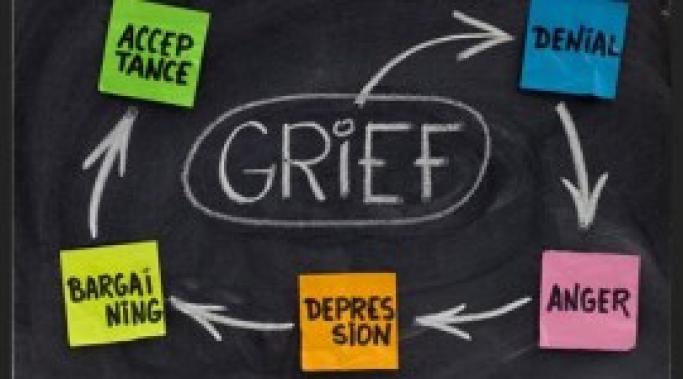Yesterday, my teenage son, Bob, told me he was depressed. This is not earth-shattering as Bob lives with bipolar disorder. What is remarkable is how he was able to identify his teen bipolar depression and share how he was feeling with me. Now I can get him the medical help he needs.
Life with Bob
My child with mental illness has experienced many unpleasant side effects from his psychiatric medications. They range from mild and unwelcome to intolerable and dangerous. During the early stages of my son Bob's treatment, I voiced my concern about side effects to my son's psychiatrist. He said, "Pick your poison." He meant I had to choose between horrific side effects of my child's psychiatric medications and my son's mental health. Ugh.
There is a pill container in my kitchen sitting on the windowsill above the sink that contains psychiatric medication that I give to my child with a mental illness. It contains 14 compartments, labeled the days of the week, AM and PM. The compartments have dosages of antidepressants, antipsychotics, mood stabilizers and acne medicine. My son, Bob, takes a handful of these pills every morning before he goes to school and every night before he goes to bed.
Two weeks ago my son Bob told me he got a Saturday detention for skipping gym class. He said they were swimming and he didn't want to swim. Later, I went online and discovered Bob was failing physical education (PE). This was maddening to me since Bob was an athlete and strong swimmer. I knew instinctively this had nothing to do with swimming and everything to do with my son's mental illness. The screaming question in my head was, "What do I do now?"
My son Bob is doing really well right now. I wish I could say he has been cured of his mental illness, but that is not the case. In fact, he is symptomatic everyday. My son is doing well because he is treatment compliant and his mental illness treatment is working. So what is treatment for a child with mental illness?
My son Bob began talk therapy at age eight after he knocked over a heavy wrought-iron barstool that ripped the back of my upholstered couch as it fell. Next he went upstairs and slammed the door to his room, putting a hole in the wall. Bob's behavior got worse despite my best parenting efforts. He was a sweet kid, but his moods changed rapidly, resulting in damage and destruction. I didn't know what to do, so I asked one of my mom friends for a referral.
It took four hours to admit my 15-year-old son, Bob, to the psychiatric hospital for suicidal ideation. It had been a long stressful day since Bob told his therapist he almost killed himself the night before. She had made Bob sign a safety contract then released him to me. I tried to keep him busy and distracted, but by late afternoon he could fight no more. Bob asked me to take him to the hospital.
October 29, 2012, it was the perfect storm. Hurricane Sandy was coming from the south. High winds and heavy rain tormented the east coast. My 15-year-old son, Bob, was spiraling towards the psychiatric hospital with suicidal ideation. I knew about the hurricane. However, I had little appreciation of the deadly depression developing in my son's brain.
I am a working mom with two challenging jobs. I'm parenting a teenage boy with mental illness and I'm an airline pilot. The parenting job is much harder. I often say I would rather land my plane in the Hudson River with no engines, than undergo the tailspin of raising a child with bipolar disorder and social anxiety.
Last week, my son Bob announced he is no longer playing basketball. Bob's been playing competitively since age five and is pretty good. This year he is a junior in high school, which means varsity -- his dream.
Bob made the decision to quit because basketball is "no fun" anymore. It brings about severe stress and crippling anxiety. In the past, Bob's anxiety has led to depression and suicidal ideation.
I told my son I support him. I'm proud he made his mental health and well-being a priority. Then I went upstairs to the privacy of my bedroom and sobbed.







